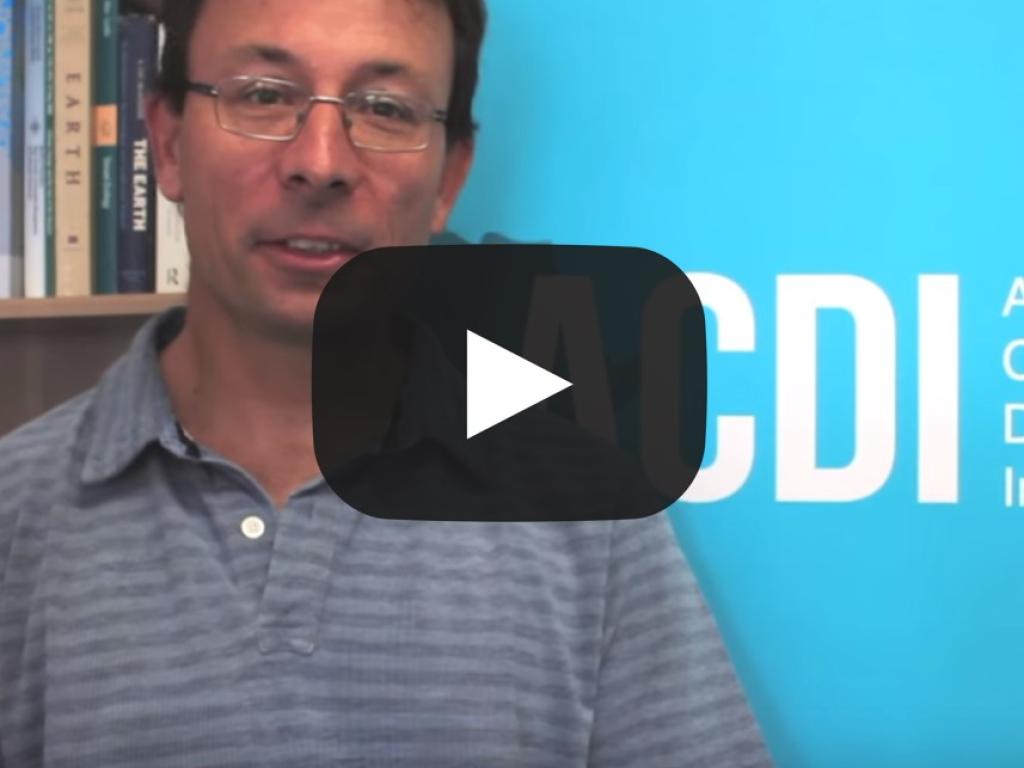Reflections on COP21 with ACDI director Mark New

The COP21 agreement shows new ambitions in responding to climate change, especially in developing countries. But there are still major ambition gaps. In this video reflection, the ACDI's director Mark New comments on what COP21 means for developing states and particularly South Africa, as well as on the ambition gaps that will require greater focus in order to be achieved. Scroll down to view the video.
Transcript:
Hello, I’m Mark New. I’m Director of the African Climate & Development Initiative here at the University of Cape Town. I was fortunate to be at the COP21 in Paris, specifically for the second week when things were getting first tense then exciting and then we didn’t know what was going to happen.
In terms of what came out of the COP, a few reflections; I think it’s great that we got an agreement that shows ambition, an ambition to keep global temperatures well below two degrees. A process by which countries have to lay out their contributions to achieving those targets and I think quite importantly the expectation that those national contributions aren’t progressively ratcheted up. So each cycle of producing a national determined contribution is meant to be more and more ambitious. Also the recognition that adaptation is equally important in responding to climate change especially for developing countries and some sort of confirmation that, there is funding, a recognition that funding is needed to enable developing countries to achieve both their mitigation, omissions reduction and their adaptation targets if you like.
Everybody has been talking about what the gaps are as well, a few sort of reflections from my side; a great vagueness on the timing of when we need to reach zero or near zero omissions, so that leaves a lot of wiggle room for actually in reality overshooting the two degrees target. So tied to that, a big gap between the current pledges in terms of omissions reductions and what’s required by science to avoid two degrees. So the current pledges take us to about two and a half degrees above preindustrial at best, this is no ways ambitious enough. There’s an even bigger gap then to this new target of 1.5 degrees that looks to me unachievable given current levels of ambition in terms of what countries are proposing for their omissions reductions.
I think the problem is this ambition gap in terms of what is being proposed by different countries, most of it lies in the developed world and the big emerging economies. The big emitters are the ones who are actually furthest away from producing the kind of cuts that are needed to produce or to end up with the temperature targets that were agreed. There seems to be a reliance that some kind of silver bullet that’s going to give us what people call negative omissions later on to get to these targets, so essentially sucking carbon dioxide out of the atmosphere. This is technology that is unproven and is probably not going to operate at the scale that’s required. And then, although there is agreement that funding is needed, the targets on the funding are vague and it’s also not clear whether this is actually new funding to support climate responses or just a recycling of old funding away from traditional development into just rebadging it as just climate funding.
Well there are other people who can probably say a lot more than me. If South Africa is serious about living up to what it signed up to, or will hopefully sign up to, with the Paris agreement, the country is really going to have to put its money where its mouth is in terms of achieving its mitigation targets. At the moment there is a clear description of what’s required, but how to achieve that and particularly the more ambitious parts of that mitigation pathway is still open to debate and it’s going to be a difficult job.
I think it means taking the renewable contribution to South Africa’s energy mix further and further and implementing other policy regimes, perhaps the carbon tax, perhaps not that are going to drive efficiency and encourage take up of more renewables. I think a need to be an informed rather than an tenderpreneurial approach decision on nuclear, so nuclear could be an important part of a zero carbon economy but it’s got to be done on best science and economics rather than political economic decision making. We need to start a process today already and thinking what these future national determining contributions are going to look like. We can’t have a last minute rush job when the next one is due, it’s got to be carefully planned and thought out and actually have a design that is feasible, that actually sort of brings to fruition what I was talking about earlier, putting money where your mouth is, how are you going to achieve these more ambitious, future nationally determining contributions. Then I think the big gap in South Africa as with most developing countries is actually the capacity to actually deliver on the ambition and by capacity I mean mostly human capacity.
There’s a big challenge in building the capacity of the actors and institutions who are meant to be delivering on this ambition to actually be able to respond in a way that really does make a difference.
Those are my short reflections, clearly things are going to emerge over the next year or two that will put much more detail into whether the Paris agreement will is going to deliver on the ambition but we certainly have in interesting few years ahead in taking ambition and making it real in practice.